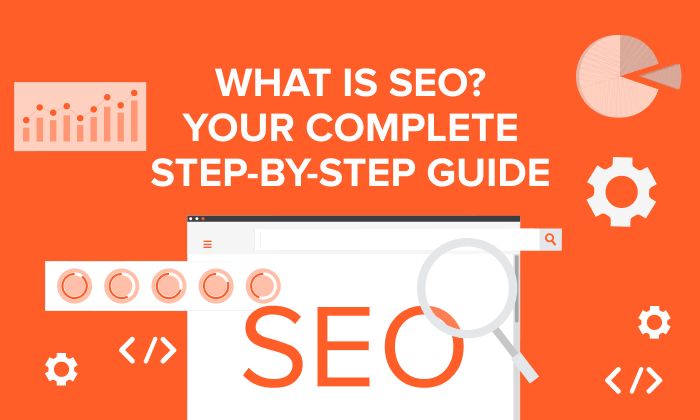The Advancement of Search Engine Optimization: From Key Words to User Experience in Digital Marketing
In the ever-evolving landscape of digital advertising and marketing, the trip of SEO from its keyword-centric roots to the present focus on individual experience notes a remarkable change. As internet search engine improve their formulas to focus on customer fulfillment, electronic online marketers discover themselves navigating a surface where recognizing intent, maximizing for mobile, using social signals, and adapting to voice search and AI have come to be essential. This change symbolizes greater than simply a modification in tactics; it reflects a fundamental reimagining of just how brands get in touch with their target markets in the electronic realm, signifying a brand-new era in search engine optimization approach that goes past mere key phrases.
The Increase of User-Centric Web Content
In the middle of the ever-evolving landscape of electronic advertising techniques, the emphasis on user-centric material has emerged as an essential consider boosting on-line presence and involvement. In the realm of Search Engine Optimization (SEARCH ENGINE OPTIMIZATION), the emphasis has moved from merely incorporating key phrases to producing useful content that reverberates with the target market. User-centric web content is crafted with the audience's demands, preferences, and actions in mind, intending to give relevant and purposeful information.
By focusing on user-centric content, businesses can establish a stronger connection with their target market, bring about boosted count on and trustworthiness. This method not just enhances the overall individual experience but additionally positively influences search engine positions. Search formulas, such as Google's, now put significant significance on factors like material quality, importance, and engagement metrics, making user-centric web content a fundamental element of any effective search engine optimization approach.
In essence, the surge of user-centric content indicates a paradigm shift in electronic marketing, where the emphasis gets on providing and constructing relationships value to individuals instead of entirely satisfying internet search engine. This shift emphasizes the significance of producing web content that addresses the requirements and passions of the target audience, ultimately driving organic website traffic and cultivating long-term consumer relationships.
Value of Intent-Based Optimization
The development of digital advertising and marketing approaches towards user-centric content has paved the method for a significant emphasis on Intent-Based Optimization in Seo (SEO) Comprehending individual intent is critical in developing content that aligns with what users are looking for online. Intent-Based Optimization concentrates on supplying web content that fulfills the details demands and intentions of users, instead of simply targeting keywords.
By analyzing and analyzing individual intent, services can customize their material to offer important information, products, or solutions that straight address what the user is looking for (Top SEO company in Singapore). This method not only improves the relevance of the web content however likewise enhances the overall user experience, resulting in greater interaction and conversion rates
In addition, internet search engine like Google significantly prioritize user contentment and significance in their algorithms. Internet sites that efficiently maximize for customer intent are more probable to place higher in search results page, driving organic traffic and presence. In today's affordable digital landscape, understanding Intent-Based Optimization is essential for remaining ahead in search engine optimization and fulfilling the advancing demands of online users.
Change Towards Mobile-Friendly Internet Sites
As the occurrence of mobile devices proceeds to rise, the change towards mobile-friendly web sites has come to be necessary for companies looking for to improve customer experience and SEO efficiency. With even more people accessing the net through company website tablets and smart devices, optimizing websites for mobile has actually transitioned from being an option to a need in the digital landscape.
Mobile-friendly web sites supply a seamless browsing experience by adjusting to various screen sizes and resolutions, making certain that content is quickly obtainable and aesthetically appealing on all devices. Top SEO company in Singapore. In enhancement to giving a better individual experience, mobile optimization is likewise crucial for search engine optimization success. Internet search engine like Google prioritize mobile-friendly web sites in their positions, considering elements such as responsive style, web page filling rate, and mobile use when identifying search engine result placements

Duty of Social Signals in SEO
Just how do social signals influence the ranking of web sites in online search engine outcomes? Social signals are an essential consider modern search engine optimization strategies, playing a vital role in affecting an internet site's online search engine position. These signals are indications of a site's significance, authority, and popularity based upon social networks communications such as likes, shares, comments, and general interaction. Online search engine consider click here for more info social signals as a step of a web site's credibility and credibility, affecting its setting in search engine result.

Welcoming Voice Search and AI
Embracing the developments of voice search innovation and expert system (AI) is essential for staying ahead in the digital advertising landscape. Voice search has acquired considerable popularity with the rise of virtual assistants like Siri, Alexa, and Google Aide. Maximizing web content for voice search entails recognizing all-natural language patterns and long-tail search phrases that mirror exactly how people talk. AI, on the various other hand, plays a vital function in examining huge amounts of data to individualize customer experiences, anticipate patterns, and automate tasks.

Conclusion
Finally, the development of SEO has actually seen a transition from concentrating entirely on key words to focusing on user experience in electronic advertising and marketing. This change has actually highlighted the significance of user-centric content, intent-based optimization, mobile-friendly web sites, social signals, and the integration of voice search and AI modern technologies. By adapting to these adjustments, businesses can improve their online existence and properly reach their target audience in the ever-evolving electronic landscape.
As search engines refine their formulas to prioritize individual contentment, digital marketing experts find themselves navigating a surface where understanding intent, enhancing for mobile, using social signals, and adjusting to voice search and AI have become necessary. Comprehending user intent is important in developing content that lines up with what individuals are looking for online. Search engines like Google prioritize mobile-friendly sites in their positions, taking into consideration factors such as responsive style, page packing rate, and mobile use when identifying search result settings.
Look engines take into consideration social signals as a measure of a site's trustworthiness and reliability, influencing its placement in search outcomes.
Sites that obtain high degrees of social engagement tend to perform far better in search rankings, as search engines interpret these signals as indicators of important and easy to use content.